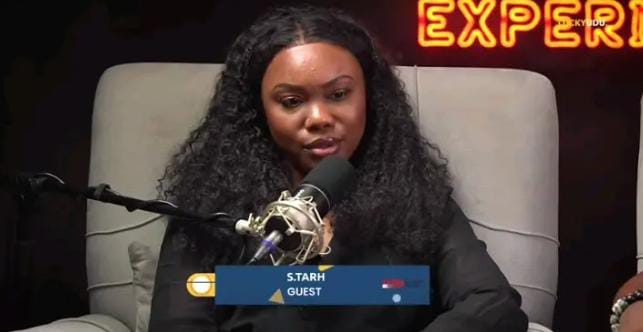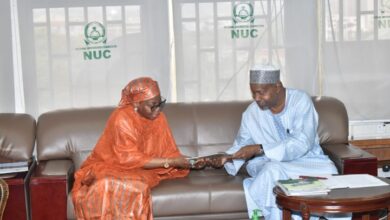Student recounts chilling encounter with hotel worker in bathroom

(DDM) – The Federal Government has launched a sweeping verification of oilfields in Delta State after bitter disputes erupted over ownership claims and revenue allocation.
Chairman of the Revenue Mobilisation Allocation and Fiscal Commission (RMAFC), Dr. Mohammed Shehu, confirmed the exercise during an inspection of the Anieze oilfield in Okpai, Ndokwa East Local Government Area.
Diaspora Digital Media (DDM) notes that petitions from Delta, Anambra, and Imo States prompted the intervention, with each state insisting that disputed oil wells fall within its territory.
Dr. Shehu said an inter-agency technical committee has been established to map, inspect, and verify the coordinates of oil and gas wells across the Niger Delta.
The committee includes experts from the Nigerian Upstream Petroleum Regulatory Commission (NUPRC), the Department of Petroleum Resources (DPR), and the Office of the Surveyor-General of the Federation.
According to him, the exercise is aimed at ensuring fairness in revenue allocation, eliminating controversies, and strengthening the integrity of the Federation Account.
Oilfield verification has long been a flashpoint in Nigeria, where boundaries between communities often overlap and disputes escalate into violent confrontations.
In 2012, similar disputes over oil wells between Rivers and Akwa Ibom states led to prolonged litigation and hostilities that disrupted production.
DDM recalls that Delta has consistently protested attempts to reassign oilfields to neighboring states, warning that such moves would drastically reduce its monthly derivation funds.
Delta State currently receives the largest share of the 13 percent derivation fund, a constitutional entitlement given to oil-producing states to compensate for environmental degradation and exploitation.
Anambra, which was officially recognized as an oil-producing state in 2021, has continued to press for increased federal allocations, citing discoveries in Ogwuaniocha and nearby communities.
Officials in Awka argue that some wells classified under Delta actually belong to Anambra and must be re-listed to correct what they call “historical injustice.”
Imo State also maintains strong claims, particularly in Ohaji/Egbema, where boundary lines remain contested and clashes between youths have occasionally turned deadly.
Host communities say they are the ones who suffer most when oilfield disputes linger, as projects are stalled, revenues are delayed, and tensions deepen.
Chief Patrick Nwokolo, a community leader in Ndokwa East, told DDM that villagers live in uncertainty because politicians argue over money while host communities lack basic amenities.
He warned that unless verification is handled with transparency, communities could lose faith in government promises of fairness and inclusion.
Activists also stress the environmental stakes, noting that poorly regulated oilfields not only trigger revenue disputes but also worsen pollution, gas flaring, and deforestation.
“Each time politicians fight over oil wells, nobody talks about the environmental cost,” said Ebiere Owei, a Niger Delta rights activist.
She urged the federal committee to prioritize the welfare of host communities, not just revenue allocation among states.
Economists argue that the outcome of this exercise could have far-reaching implications for national revenue, as Nigeria remains dependent on crude oil for foreign exchange earnings.
Dr. Shehu assured that the process would be impartial and evidence-based, with findings submitted to both the Presidency and the National Assembly for further action.
He emphasized that fairness is non-negotiable, stressing that boundary verification must put an end to decades of petitions, litigation, and inter-state rivalries.
Political observers note that the verification exercise comes at a sensitive time, with the 2027 elections approaching and oil revenue distribution already a central campaign issue.
Some fear that the findings could inflame political rivalries if any state is perceived to have lost oilfields to another.
Others argue that an accurate verification could strengthen national unity by putting to rest disputes that have drained resources and heightened ethnic divisions.
Community voices, however, remain skeptical, with many recalling that past committees submitted reports that were never implemented.
“This time, we hope it will not end up in Abuja shelves gathering dust,” said Mrs. Kate Enebeli, a women’s leader from Ndokwa East.
She stressed that real fairness would be seen when communities start enjoying tangible benefits from the oil wealth extracted from their soil.
Post Views: 120





